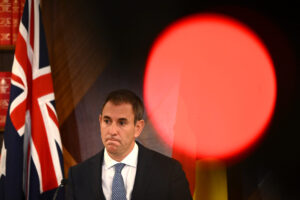Petrol tax: progressive or regressive> Check the facts
Treasurer Joe Hockey has said “the poorest people either don’t have cars or actually don’t drive very far in many cases.” The Treasure also said that the fuel excise is a “progressive tax”.
The Treasurer defended his statement saying “I can only get the facts out there and explain the facts, how people interpret them is up to them”.
So let us consider how much households spend on fuel.
Selected household income and expenditure data by quintile (2009-10).
| Lowest | Second | Third | Fourth | Highest | |
| Average weekly household expenditure on petrol ($) | 16.36 | 27.60 | 38.55 | 47.00 | 53.87 |
| Average weekly household disposable income ($) | 522 | 909 | 1,276 | 1,756 | 3,189 |
| Petrol as a share of income (%) | 3.1 | 3.0 | 3.0 | 2.7 | 1.7 |
Assuming for one moment that every household had $100 to spend each week, the lowest 20 per cent of households would spend $3.10 on fuel compared with the highest 20 per cent who would only spend $1.70.
Of course, the data also shows that the top 20 per cent actually spent more ($53.87) on fuel than households with the lowest income at $16.36. This fact reflects another fact; the wealthy have more money to spend. Six times as much.
It is the relative proportion of income spent on fuel and not how much that is spent that will determine the impact any increase in the fuel excise would have on family budgets.
As poorer households spend proportionally more of their disposable household income on fuel an increase in the fuel excise will represent a larger cost burden for them than it will for households with more money to spend.
A progressive tax is one in which “the average rate of tax increases as income increases” whereas a regressive tax sees “the average rate of tax decreases as income increases”. Therefore, any increase in the fuel excise is a regressive tax increase rather than a progressive tax as claimed by the Treasurer.
Between the Lines Newsletter
The biggest stories and the best analysis from the team at the Australia Institute, delivered to your inbox every fortnight.
You might also like
18 Reasons why the Stage 3 tax cuts should be redesigned
Australia Institute research shows the Stage 3 income tax cuts are fiscally irresponsible, massively expensive and completely unfair.
Stage 3 Better – Revenue Summit 2023
Presented to the Australia Institute’s Revenue Summit 2023, Greg Jericho’s address, “Stage 3 Better” outlines an exciting opportunity for the government to gain electoral ground and deliver better, fairer tax cuts for more Australians.
Richard Denniss: National Press Club Address
On Wednesday, 31 January 2024, Richard Denniss and Allegra Spender MP addressed the National Press Club for a debate on the Stage 3 tax reforms. **Check against delivery** [See below for transcripts] Tax is good. Tax is an investment in our society and the highest taxed countries in the world also happen to be the


